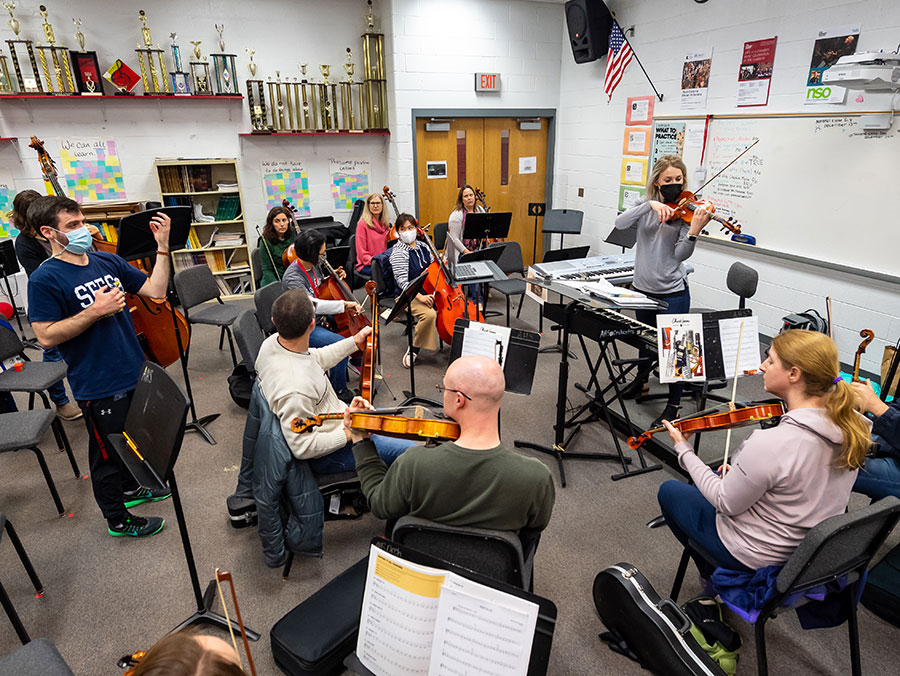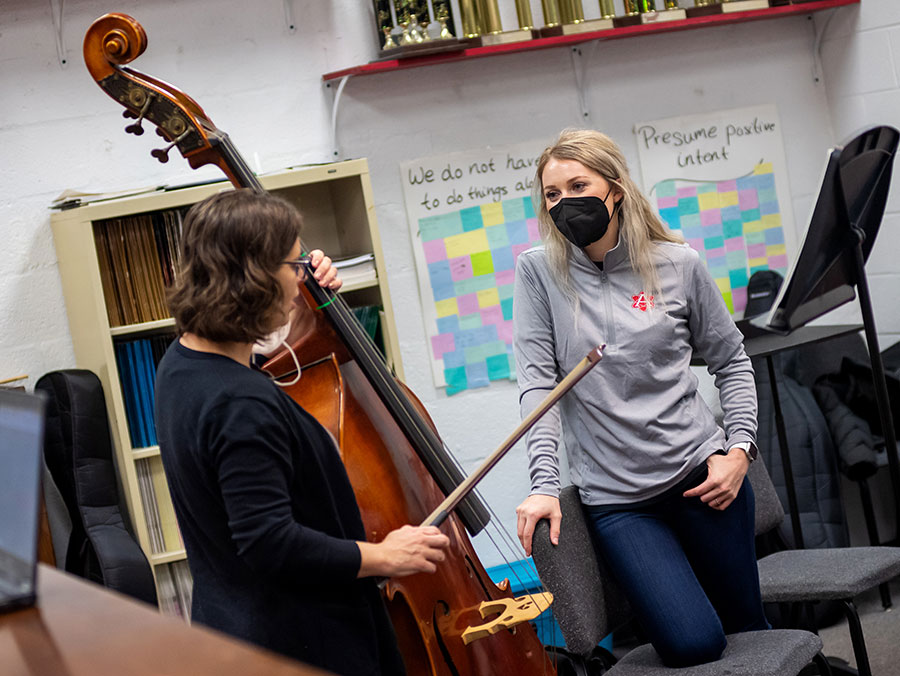Music has always been a part of Annie Ray's ('17) life.
She took up the piano at age 3 and the harp at age 5. She learned how to play string instruments as she took classes in middle and high school and served as orchestra manager.
But it was more about making music; it was a way to create relationships and see her friends' personalities come out.
"Music was the reason I got through high school," she says. "Music is a way of equalizing everyone and bringing everyone together."
Now as a teacher, she's making sure others get the same experience. She began an orchestra for students with intellectual disabilities at the suburban Virginian school district where she works, which won attention from The Washington Post, and she gave the TEDx talk "The Sounds of Success" earlier this year. She also created an orchestra that attracts over 150 parents who play with their children each year.
She's not only brought joy to the students, but it's changed her perspective on how she sees music.
"The end result is we were successful and making music together," she says. "It's really freeing because there's no expectations."

